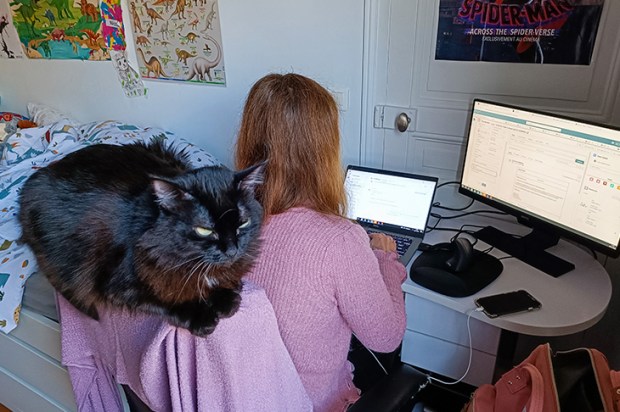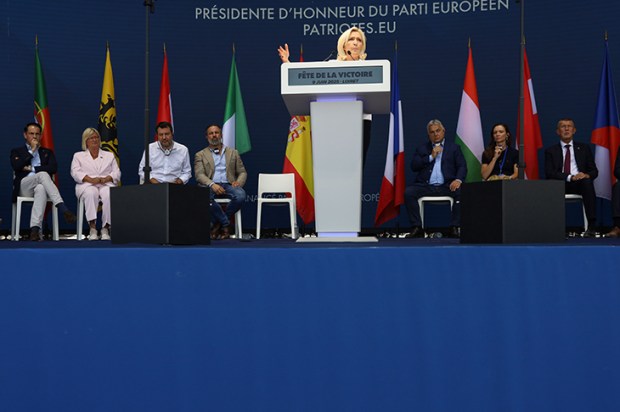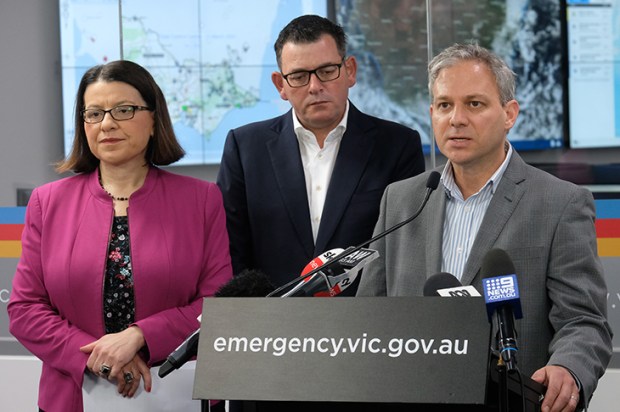In recent times, Sorry Days have become quite popular, delivered by representatives of both federal and state governments. Apologies have been offered to the stolen generation, the victims of child abuse in state care and adopted children and their parents, inter alia.
There are ceremonies, specially invited guests, lots of tears and all-round bonhomie tinged with sadness.
Here’s my prediction: within a decade or two, governments will be offering an apology to folk living in rural and regional communities for the destruction of their local environments undertaken in the name of saving the environment. Even today, there is a high degree of irony to the concurrence of the promotion of highly subsidised renewable energy and the despoliation of local landscapes.
A part of the apology will be a promise to fund the remediation of the affected land – the initial renewable energy owners will be nowhere to be seen, the assets having been flipped multiple times – and to return the affected areas to a state akin to its original condition. Of course, this won’t be achievable in many cases – the koalas that lost their habitat are unlikely to return, for example. Those great ugly swathes though the Kosciuszko National Park will never fully recover.
I was never sure whether former chief scientist, Alan Finkel, was tongue-in-cheek when he wrote in 2023 in the following terms. ‘Think forests of wind farms carpeting hills and cliffs from sea to sky. Think endless arrays of solar panels disappearing like a mirage into the desert.’
But his next paragraph gave the game away. ‘What we have now has to be scaled up by a factor of 20…. It will take untold miles of high-voltage transmission lines to carry the electricity to power the mines and factories and the 24-hour buzz of civilisation. It will take engagement with and support for affected communities; financing at an unprecedented scale.’
Don’t you just love the idea of ‘engagement with and support for’. Let’s face it, it’s just code for sending a few letters, holding a small number of town meetings and then telling the affected landowners what’s going to happen.
From time to time, a few bucks are thrown in, but this is done on the proviso that those receiving monetary compensation talk about the joy of having turbines/solar panel on their land as well as the broader benefits of renewable energy. Any criticism will lead to withdrawal of the dollars. I kid you not, it’s all there in the contracts that they are required to sign.
There was some recent ‘good news’ that renewable energy and transmission companies have got better at consultation, that they have learned some lessons from their experiences. No doubt, this was just some nonsense spin put out by the PR spivs representing those companies.
There was a ridiculous story about the compatibility of sheep grazing and solar panels. What tosh. A high school student might ask: how does the grass grow under the panels? How does the farmer round up sheep when they are scattered through the maze of Chinese-made solar panels? Another PR tale.
The reality is that state governments have allowed renewable energy companies to avoid the normal approval processes, including environmental assessments. In Victoria, the completely hapless (and that’s being kind) Climate Change Minister, Lily D’Ambrosio, issues ministerial directives as if they are going out of fashion.
Many of our country cousins have fought back, but the odds are stacked against them. There’s no money from the Environmental Defenders Office to assist them in their quest to protect their local environments. It’s old-style collective action with inadequate funding.
In the case of the VNI West transmission link, that connects Western Victoria (and the renewable energy projects located there) to New South Wales and Snowy 2.0 (OK, Snowy 2.0 sometime in the future, possibly never), the objections of a group of landowners were so intense that the planners have moved the route. We are told this was the preferred route in any case.
But in doing so, there is now a new clutch of angry landowners who quite rightly point to the fire hazards involved as well as the incursion into highly arable farming land.
The Hume Link that connects Snowy 2.0 to Sydney consumers has similarly been rerouted because of fierce objections from affected landowners. At great cost, it now cuts a swathe through a national park.
My Sorry Day may have to extend to coastal communities who have had to put up with the eyesores of monstrous wind turbines sitting in the ocean, easily seen from land. There is a distinct possibility that the offshore wind projects may not go ahead – their economics suck relative to ones located on land, generally on hillside ridges. Quite a few offshore wind projects have been cancelled overseas because their business cases simply fail to stack up.
But given B1’s dogged determination to make his mark, he may end up bribing some investors to go ahead with one of the approved offshore wind projects. By the time the Sorry Day is announced, many of these turbines will be rusting in the ocean – after all, salt water and engineering are never a good mix.
In order to get ahead of the game, I have drafted out a speech for the prime minister of the day, Ms Common Sense, to deliver. It reads as follows.
Today we meet in the Federation Chamber to offer our apologies to those adversely affected by the senseless decision to impose harmful renewable energy installations in rural and regional areas. They cover massive wind turbines measuring over 200 metres and many hectares of industrial-scale solar panels. The continued presence of massive batteries involves an ongoing hazard.
We apologise for the loss of the last of the remnant vegetation on the Great Dividing Range and for the environmental damage caused in many parts of the country, including in National Parks. We are saddened by the associated loss of habitat for our precious fauna and accept that those assurances that animals could be relocated were simply wrong. We also apologise for the loss of arable land and the associated loss of food and fibre production.
We are sad about the angst that was caused in country communities, pitting neighbour against neighbour. We are sorry for allowing the renewable energy companies to ride rough-shot over landowners by permitting these companies to by-pass normal approval processes and imposing gag order on contracts signed. This was simply wrong.
We accept the responsibility to restore the land to the state it was prior to this damaging and futile development, as much as this is possible. We concede that this will not be entirely possible. The companies that imposed this mutilation to the rural and regional areas are long gone. There was no legal obligation to remediate the land and the government at the time was wrong to overlook this requirement.
We are sorry but we are confident that this blight on our history will never be repeated.
Got something to add? Join the discussion and comment below.
You might disagree with half of it, but you’ll enjoy reading all of it. Try your first month for free, then just $2 a week for the remainder of your first year.












